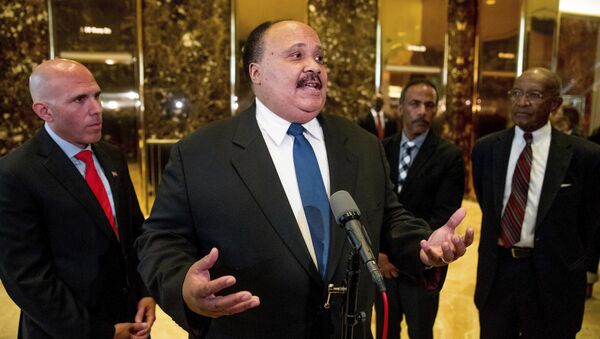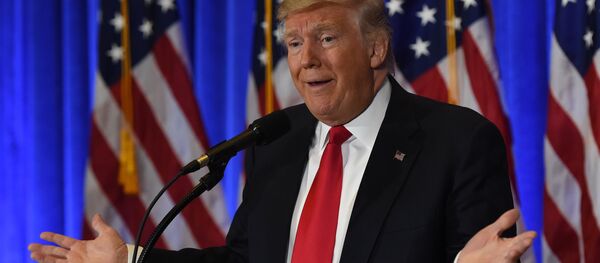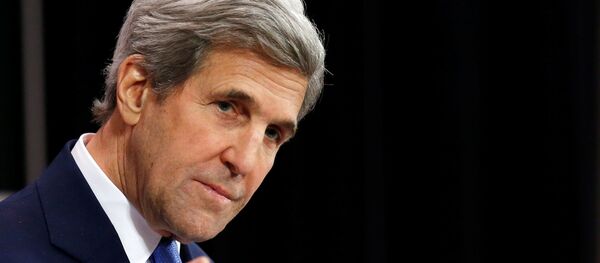Martin Luther King III, the son of Martin Luther King Jr., spent about an hour with the president-elect. The timing couldn't have been better for Trump, as only days earlier, he had launched a Twitter attack against a compatriot of King's, the civil rights crusader John Lewis, a member of the US Congress.
Lewis called Trump "illegitimate" as a president, and Trump came out swinging, ignoring Lewis's record on civil rights action and criticizing his work in Congress. Now, 26 members of Congress intend to boycott Trump's election later this week, most as a result of his attack on Lewis.
However, outside Trump tower, King said "We have got to move forward."
King met with Trump to discuss voter participation, and called their conversation "constructive." King, who is president of the Drum Major progressive policy think tank, has long been an advocate of establishing a free government photo identification to make it easier for those who lack a form of official identification — which cost money — to vote in states that require them. Several other members of his organization also attended the meeting.
Trump voiced support for voter identification laws during his presidential campaign, calling them necessary to prevent voter fraud. The laws tend to be supported by the GOP and opposed by the American left, which criticizes them as mechanisms to suppress voting by poor but legitimate voters, and often as ways to prevent immigrants and people of color from voting either through cost or intimidation.
"It is very clear that the [voter participation] system is not working at its maximum," King said after the meeting, MSN reported. He and some other voting rights activists have pushed for free photo identification — putting a photo on the Social Security Cards issued to every citizen by the government — as one possible solution.
According to one meeting participant, Trump said he was very interested in the idea of putting photos on Social Security Cards and would study the issue further.
King has said before that when it comes to voting rights, he is hopeful of what can be done under a new administration.
Regarding the spat with Lewis, King said the "heat of emotion" caused much to be said on both sides. "At some point in this nation we've got to move forward," he commented.
King also said he would "continue to evaluate" how well Trump was actually working for all Americans, and said his father would have understood the need to engage. He said he trusted Trump's intent to represent all Americans.
"I believe we have to consistently engage with pressure, public pressure," King said. "It doesn't happen automatically; my father and his team understood that, did that."
"I think my father would be very concerned about the 50 to 60 million people living in poverty. It's insanity that we have poor people in this nation, it's unacceptable. We need to be talking about how to clothe people, how do we feed people."
Washington consultant Doris Crenshaw, who met Martin Luther King Jr. before his assassination in 1968 and worked with the NAACP as a community activist and civil rights campaigner, told the Guardian it was good for King to meet the president-elect, even under the circumstances.
"You cannot operate with a ‘no talk' policy: someone has to get in there and talk to Donald Trump and I think King should be congratulated for his efforts. It's important to address poverty and education problems that we have nationwide," she said.




